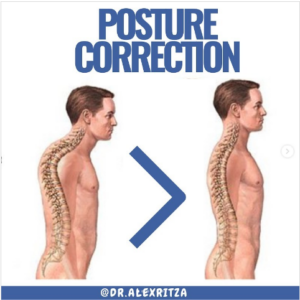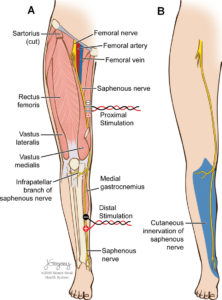You show me someone who is a “natural” and I will show you someone who has just practiced a lot.
This is something that I have come to believe through reading about neuroplasticity, epigenetics, which is the study of how the environment determines how your genes work, and comparative studies of genetically identical twins. But I was recently reminded of it by the best book I have read this year.
The book was Just Mercy, by Bryan Stevenson. If you have not heard of Bryan Stevenson, he has been described by Oprah no less as the Nelson Mandela of the south. He is a Harvard educated lawyer who has spent the last two decades through his own efforts and through the founding of the Equal Justice Initiative trying to get both the rightfully and wrongfully convicted off of death row in the Deep South of the United States.
He has tried to achieve mercy for these men and women, and his book describes his efforts to overcome injustice and prejudice in a way that will have you feeling disgusted at the injustice he describes, pure tearful joy for his successes and a truly deep sense of empathy for convicted criminals you might be surprised about. Read this book – it is amazing!
But something that caught me off guard while reading Just Mercy was how Mr. Stevenson described his titanic sense and capacity for empathy. I had never thought of empathy like this before because he describes it as not something he was born with but as something that has been developed over years of practice. Practiced instigated by being an African American living in the south, from the type of work he does, and through the active and conscious practice of empathy towards those he meets.
For me, I thought, “Eureka”! Of course! Sure this saint-like person might have been born a little more empathic and caring than the average human but his empathy is a skill. He is so good at it because he has been consciously practicing it his entire life. As Malcolm Gladwell would say, he has his ten thousand hours of practice and that is why he is so good at it. He has his reps in.
And this is the thesis and purpose of today’s episode: to convey that everything (literally) is a skill. And even if you do not believe me, you should practice life this way because it is simply a better mindset – it is, of course, a growth mindset
I firmly believe that no one is born naturally gifted. No one is born with an innate talent or skill to do something, but it is rather the product of lots of practice and repetition. There may be some hereditary predisposition to being great but once you are born, the clock starts on how much practice you get at everything from piano to sports, to maintaining a positive attitude.
Of course, genetics play a tremendous role. The research shows this. Your genes, which influence which proteins are produced, are going to have a tremendous influence on your health, intellect, personality and just about everything.
But they are only an accelerant. Sports is the easiest field to reference but I will try a couple others to convince you.
Take people like Andre Agassi and Tiger Woods. They became the best in the world because they practiced the most. When you read about their childhood, it was almost entirely focused on being the best tennis player and golfer in the world, respectively. I would also recommend you read Andre Agassi’s biography because it is firstly, amazing but it is incredible to see what oppressive level of training to took for him to be a champion and why he came to hate tennis.
With both athletes, their genetics likely accelerated their ability to learn, master skills and ensure that the upper threshold of their improvement was higher than the average person, absolutely. But it wasn’t their genes alone that got them to where they are.
So for the non-sport example, think about something like public speaking or performing like a singer would do. Was someone like Barak Obama or Jamie Foxx born with some genetic predisposition to be good at standing up in front of people, likely yes. But the both of them have been performing their entires lives. Jamie Foxx talks about practicing singing, dancing and performing for adults even as a young kid and I don’t want to think to imagine how many speeches President Obama has made since childhood – likely a lot.
Many virtuoso chefs have spent their entires lives in the kitchen and have just had so much practice tasting, preparing and exploring food that their brain is trained to know what tastes good with what.
In the case of soft skill like kindness or positivity, I think about kids that are raised in a household where they are both forced to, and rewarded for practicing these skills through positive feedback. They start getting in so many reps from a young age that it becomes the only way their know how to live. It is a skill they execute repetitive each day and just keep getting better at it.
I challenge you to think of something where repetition sprinkled with a little genetics is not the reason some is good at something. Because just like sport, everything else we do, whether it is a motor skill, cognitive skill, or in the case of empathy, an emotional skill, they all follow the same neurobiological rules.
When you are learning a new skill, the brain is very inefficient at performing it. It uses a lot of neural pathways to execute what you want to do, sending a multitude of signals every which way, sometimes to the wrong destinations. It is like trying to roll a marble along a flat surface towards a target, you might get it there occasionally but it has the tendency to easily get off track.
But with continued practice, the brain and nervous system become more efficient at performing that skill. Through neuroplasticity, the nervous system reorganizes itself by forming new and different connections to the electronic signals follow the most efficient and effective path in performing the skill rather it is swinging a tennis racquet, practicing meditation or responding to something you see with empathy. With more and more practice, a deeper and deeper track is formed in the floor and the marble rolls more easily towards its target and is less likely to roll of course.
It is a gross simplification but you get the idea: the more practice you have at something, the easier it is too efficient to activate the neural pathways associated with that skill and the better you get at it.
So why is this important?
Every time that I hear someone say with a sense of frustration or self-loathing that they are “terrible” at something or some other comment where they put a self-imposed limit on their abilities, it makes me really sad.
I want to say to them that, no you aren’t terrible at anything, you likely don’t have enough practice at it. You haven’t put in the reps.
Especially with things like meditation, building a sleep routine, practicing a growth mindset, journaling, whatever hard or soft skill it might be, people, including myself, give up too early because they initially suck at it.
I feel like saying, of course, you suck at it, it is a skill that you have never practiced before. DUH. You couldn’t expect to go out and deliver the “I have a dream speech” on the steps of the Lincoln Memorial right off the bat. You have to get your reps in. These things are all skills that with continued practice, you will get better at over time as your brain adapts and gets more efficient. The acknowledgment that everything from meditation, to positivity, to tennis and yes empathy, is a practiced skill that gets better over time allows you to avoid being discouraged and frustrated, remain hopeful and stick to your process that will eventually lead to getting better.
There are certain times in your life when you might pick it up faster or make it more challenging to learn but the mindset, and I think the reality is, that for every skill – which is everything in the world, it is always possible to get better.




